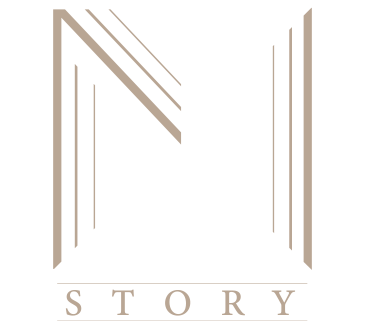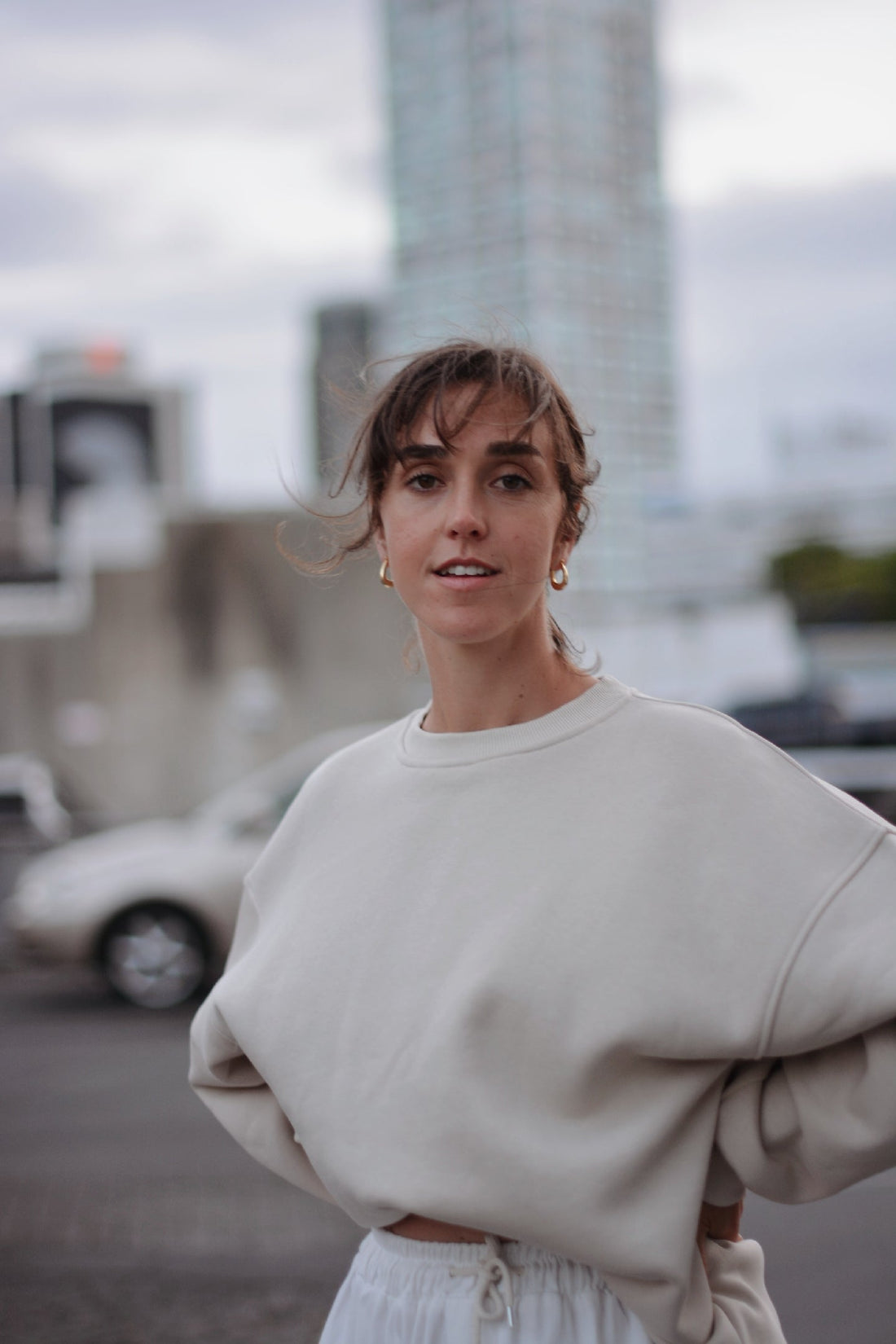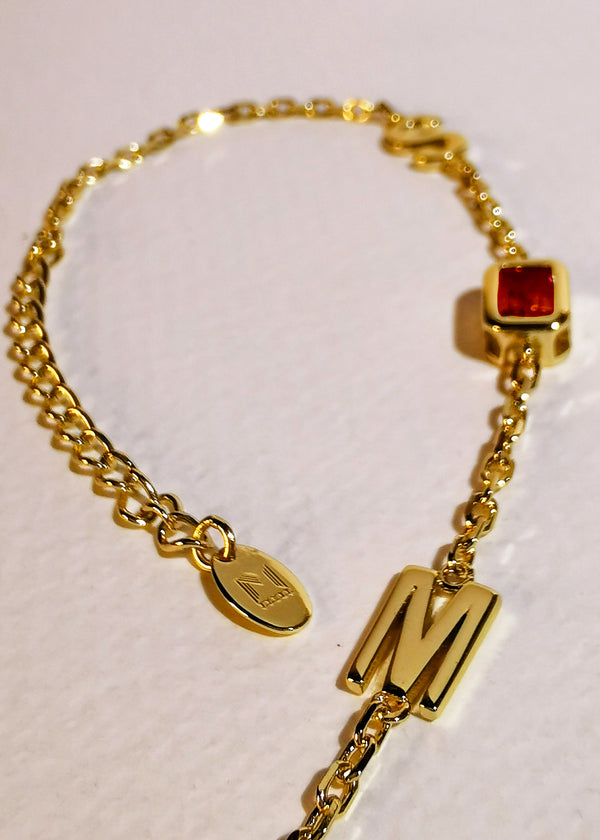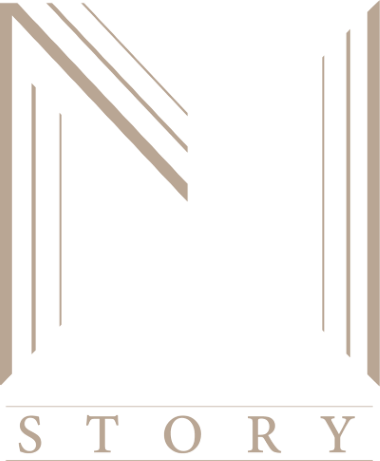Hi Sian, I am so grateful to have you here today. It will be really interesting to get to know you and your story, and to have a sneak peak of your perception of life. To start with, please tell us a little bit about yourself. How would you define yourself?
Right now, I would say that there are qualities that I aspire to, and qualities that I have and that I want to cultivate more of. One of the most important qualities that I aspire to would be truthfulness. I've spent a very long time in my life looking at the way in which the human mind is conditioned. From quite a young age, I became aware that I didn't love my own conditioning from childhood. I have been peeling off the layers of what it means to be me in the world, seeing many perceptions and identities that I've created for myself, and seeing that none of them really lead to wellbeing or happiness. Maybe they do for a short period of time. Maybe they're fun, but they don't last. So then I turn around and I ask the question, what is truth for me? That for me is my main inquiry on a deeper level. I engage in body-based practices as a way of discovering that – this is my approach to wellbeing.

What led you to this approach?
I wasn't really on this track a decade ago. I was a politics student. I loved a very hard and fast life. A lot of partying, a lot of work and a lot of caffeine. You know, a very hyper kind of energy. I was living in Tel Aviv, then I got very sick and I found out that I had celiac disease, Hashimoto’s, and gastritis. I was not well and I needed to fly home. That was the start of a long journey of recovery. It forced me to go towards the physical versus into the mind - into the head and thinking. That's when I started meditating more seriously. I had been studying a bit of Buddhism beforehand, but at that point, I started to get a little more serious about it. It was over a series of years that I started to accept that there was a lot more going on in my body than just autoimmune conditions. There was a reason why I got them.
Then I met my meditation teacher and started to play with the idea of psychology. I've been working with NGOs** and mostly doing work with refugees and humanitarian type work. I was using the politics piece with that, but I always had this interest in psychology. I ended up writing my dissertation on the discrimination of Roma communities in Europe, looking into the psychological mechanisms of how we justify racism through reinforcing stereotypes. When I got back in New Zealand, I started doing some work for homeless communities and it all started to become a lot more psychologically related. Now, having finished my master's, I'm working in behavioural therapy. I've chosen this aspect of psychology because it allows the fusion of mindfulness meditation with cognitive and behavioural therapy.
*non-governmental organisations
What are the body practices that you mentioned before?
My personal practices are body scan type meditation and Tai Chi. Very different practices, but they hugely complement each other. I am also a yin yoga teacher, but I'm not teaching at the moment.
Would you say these changes in your life, your new approach to wellbeing, have helped you to improve your health?
I think what seems really obvious is the inability to separate the body and the mind. So the first step was not thinking that I had a symptom I needed to fix, but rather that there was an internal disorder of some kind, a disharmony that needed to be expressed. I didn't have the tools to create a container to allow it to be fully expressed. Meditation and Tai Chi create a space in which past conditioning, trauma that have been repressed can reveal. But it's an ongoing process. Living in a busy city like Auckland, it's actually a constant practice, in order to not be in some form of contraction, some form of threat. I think we all have that to a varying degree.

You explained how truthfulness is very important for you. What are other values that navigate your life?
I think recently, it’s openness. That's a harder one for me, but that is important. And also playfulness. I can be a very mental person, and I spend a lot of my day in the mind. Having the ability to flexibly play with life seems very important as a value.
What are your strengths?
I'm a very resilient person, I can be very independent, I'm a great cook. I actually owned my own cake business in Israel. I am a very good yoga teacher, from what I hear from my friends. I find it difficult to pretend, which sometimes could be so useful (laughs). And I really try to say what I mean.
What are your weaknesses?
Doing too many projects at once. I think it's better if I just have one or two on the go, because task shifting is quite hard for me. If I'm really into something, I put all my energy into it, so it is really hard for me to shift into the next project.
Sometimes I am judgemental of other people and myself. It involves a lot of self-criticism, self-judgement and high standards. That's actually an aspect of mind that has been very strong for me, and that I've worked with quite a lot in my practices.
Do you have any insecurities and how do you deal with them?
The mind lives in the past or the future and both of those places are very insecure. The more I'm in my head, the more insecure I feel. On a deeper level, from my own childhood, I would say there are certain things that can trigger a feeling of abandonment and the feeling of not being good enough or not smart enough or not exciting enough. If I'm not careful that would trigger a sense of needing to overcompensate and my behaviour becomes a reaction to it.
What was the biggest challenge that you’ve faced in your life and how did it affect you?

Getting celiac disease, definitely. That five or six years of chronic pain made it hard to socialise. The challenge wasn't so much being diagnosed and having to leave my life in Israel and having to come home. That was actually fine. The challenge came after three or four years of still not being cured and the frustration of that. It really affected my work (I had to work part time), my energy levels were really fluctuating and it played on my mood. All of these things forced me to change my lifestyle. It forced me to slow down, it forced me to stop drinking as much caffeine and so on.
What is the most important life lesson that you've learned so far?
That the body doesn't lie.
What is the advice you would give to your younger self?
When I'm thinking of that question, I think more like if I met my younger self, what would I do? It really depends on what age. But if I met myself, say, before 10, I think I would just give her a really comforting form of physical contact. I’d sit with her and be there. And then if I met my teenage self – wow, no comment (laughs).
Do you have any advice for yourself today?
Find your power.
How do you recharge?
Lying down with my eye pillow (laughs). Focusing on my breath, Tai Chi, alone time - I always recharge alone…
I can relate!
…saunas, spas and sometimes trashy TV (laughs).
What makes you happy?
To be honest, I associate that question with the physical feeling of release. In the happy memories that I have, I would feel released; physically relaxed. There are many memories where I look happy on camera, or in others’ perceptions. But my memory of it is not happy. For me happy memories are very simple moments, often in nature: going down to the beach in the morning and watching the dogs, going for a walk. Yin Yoga often feels happy. But also it can be when I am in the mental space. Or it can be sharing presence with someone, if I'm dropping in and I feel some energetic connection - that can make me happy too.
Do you have a role model? What is your source of inspiration?
My teacher Dr. Graham Mead is an amazing practitioner. He was previously a medical doctor and now he teaches self-inquiry. He initially led me to see that I wasn't really that spiritual at all (laughs).

Wow. Can you tell us more?
I guess he showed me the gap between what I perceived myself to be as a spiritual person, I.E. my imagination, and the reality of my actual life. There was a huge difference between progress that I thought I had made in my meditation practice and the state of the creature of my body. I had created an intellectual type of spirituality, which, I think there's a term for it now, is called spiritual materialism. I had become very, very good at accumulating knowledge, I enjoyed it, I would talk about it, but very little of that would have been realised in my life, in my actual experience.
I would (and still do) get completely overwhelmed with sadness, depression, urges, or cravings. I'm becoming very, very much identified with these things that come up in my life. And this is hard not to. Emotions are strong. But that's not all there is - thoughts and feelings are transient. They rise and they fall. There is a choice, an agency, that humans have because we're conscious not to identify with them, not to become completely moulded with the feeling. This is very hard, right? Tiredness, for example, feels so real. When you're tired your whole body wants to just feel tired. And yet, there is an aspect of our being that is not tired. For me right now, spirituality is realising my daily life, my daily struggle. And that’s what I mean by the gap.
To finish on a positive note, is there something you're excited about this year?
A lot. It feels like this is a year where my career will really take shape, and I'll get to practise Acceptance and Commitment Therapy in some shape or form. Also, this year I feel a little freer than I ever have. And that's a good sign.
Beautiful. Thank you so much.



